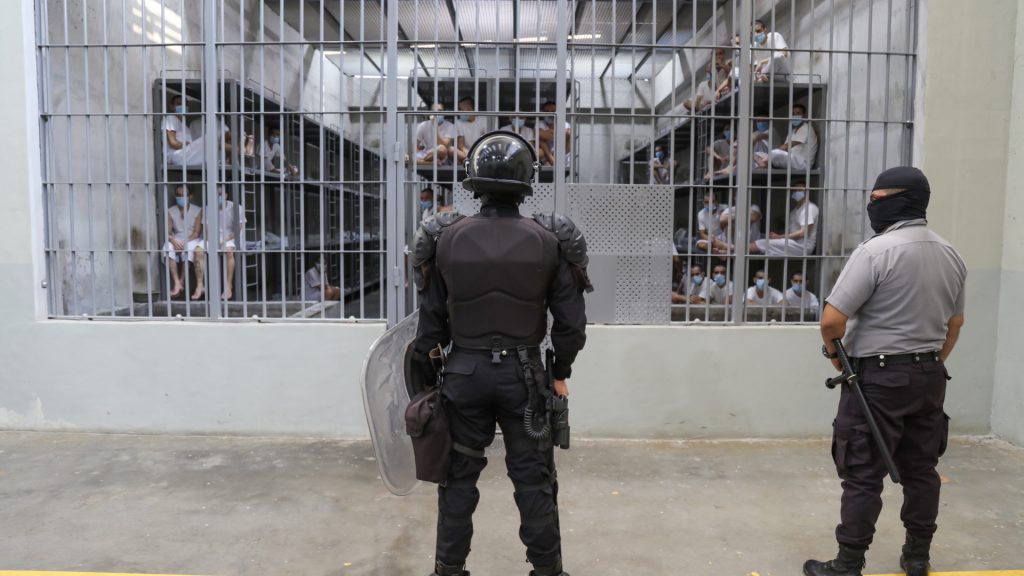Judge halts Abrego Garcia ruling, another orders return of second migrant
Ella Greene April 24, 2025 0
Two federal judges have ordered the Trump administration to take steps to reverse the deportations of two migrants mistakenly removed to El Salvador. One case involves Kilmar Abrego Garcia, a Maryland resident deported despite court protections. The other centers on a Venezuelan asylum seeker whose removal violated a class action settlement.
Both rulings accuse the administration of breaching legal obligations and raise concerns over the use of emergency powers and compliance with court orders.
Judge halts order for details on efforts to return Abrego Garcia
A federal judge in Maryland temporarily halted her own order requiring the Trump administration to disclose efforts to bring back Kilmar Abrego Garcia, a Maryland man mistakenly deported to El Salvador. According to CBS News, U.S. District Judge Paula Xinis granted a seven-day stay after the Department of Justice filed a sealed motion. The stay remains in place until April 30.
Despite a 2019 immigration court ruling that protected him from deportation, the Trump administration expelled Kilmar Abrego Garcia, a longtime U.S. resident with no criminal gang record. The Trump administration called the removal an “administrative error,” according to Newsweek. Still, it has refused to reverse the decision and continues to accuse Garcia of MS-13 affiliation — a claim his attorneys deny.
What information has the administration withheld?
The administration has resisted court orders demanding testimony and documentation, citing attorney-client privilege, government deliberation protections and state secrets. According to court filings reviewed by CBS News, Judge Xinis rejected those general assertions and directed officials to provide specific justifications for each withheld item. She said the vague privilege claims amounted to “bad faith” and “obstruction.”
What legal consequences has the administration faced?
The case has become a flashpoint over executive defiance of judicial authority. A panel from the 4th Circuit Court of Appeals criticized the administration’s position as “shocking,” while a separate judge in Washington, D.C., found probable cause to hold Trump officials in contempt in an unrelated deportation case.
What happens next?
Although the temporary stay is in effect, the Trump administration must continue to submit daily updates on its handling of Abrego Garcia’s case.
The Supreme Court previously affirmed the order for his return. Legal observers said this case may have broader implications for the separation of powers and judicial enforcement.
Another ruling, similar outcome
In a separate decision, another federal judge has ordered the Trump administration to reverse the deportation of a second migrant sent to El Salvador in violation of a legal settlement.
Who is the second migrant and why was he deported?
A federal judge in Maryland ordered the Trump administration to take steps to return a 20-year-old Venezuelan migrant, known in court as “Christian,” after officials deported him to El Salvador in March. ABC News reported the deportation violated a 2024 settlement agreement protecting asylum-seeking minors who arrived in the U.S. without guardians.
How did the court justify its decision?
U.S. District Judge Stephanie Gallagher ruled that the deportation breached the class action settlement, referencing the similar case with Kilmar Abrego Garcia. Reports said Gallagher directed the government to request in good faith that El Salvador return Christian so U.S. officials can process his asylum application.
What did the government argue in response?
The Trump administration argued that Christian lost his protected status after it designated him an “alien enemy” under the Alien Enemies Act. Officials also cited a Texas drug conviction as part of the justification for his removal. Gallagher rejected those arguments, emphasizing that the settlement terms still applied.
What precedent is involved in this case?
The 2019 class action lawsuit was filed on behalf of unaccompanied minors seeking asylum. The plaintiffs argued that deporting Christian without allowing him to complete his asylum process in the U.S. violated the legally binding settlement. Gallagher treated the case as a contractual dispute and said the removal must be reversed.
Ella Rae Greene, Editor In Chief
Ella Greene
Ella and the staff at Clear Media Project (CMP) curate these articles.
Unless otherwise noted CMP does not write these articles.
The views, thoughts, and opinions expressed in the articles published on this blog belong solely to the original authors and do not necessarily reflect the views of the blog owner. The blog owner does not claim ownership of the content shared by contributors and is not responsible for any inaccuracies, errors, or omissions.
All rights and credits goes to its rightful owners. No Copyright Infringement is intended. If you believe any content infringes on your rights, please contact us for review and potential removal.





